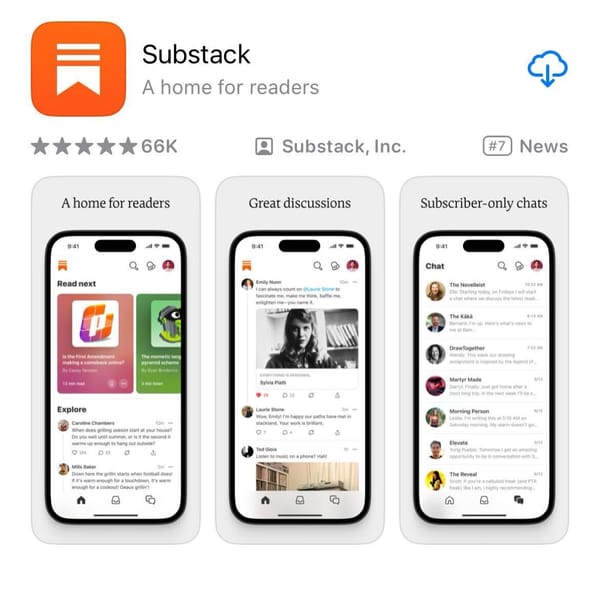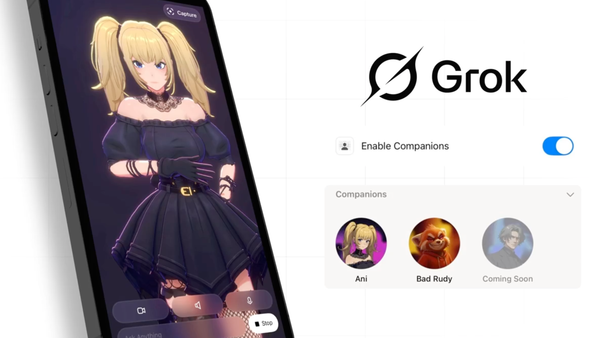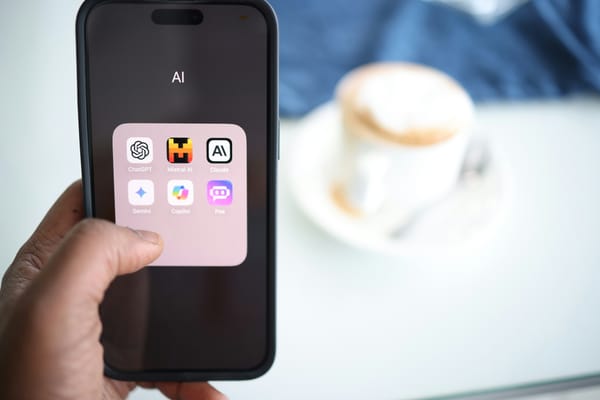At Meta Connect, it’s Zuck or nothing
The company has an expansive vision for the future — and until then, some incremental updates
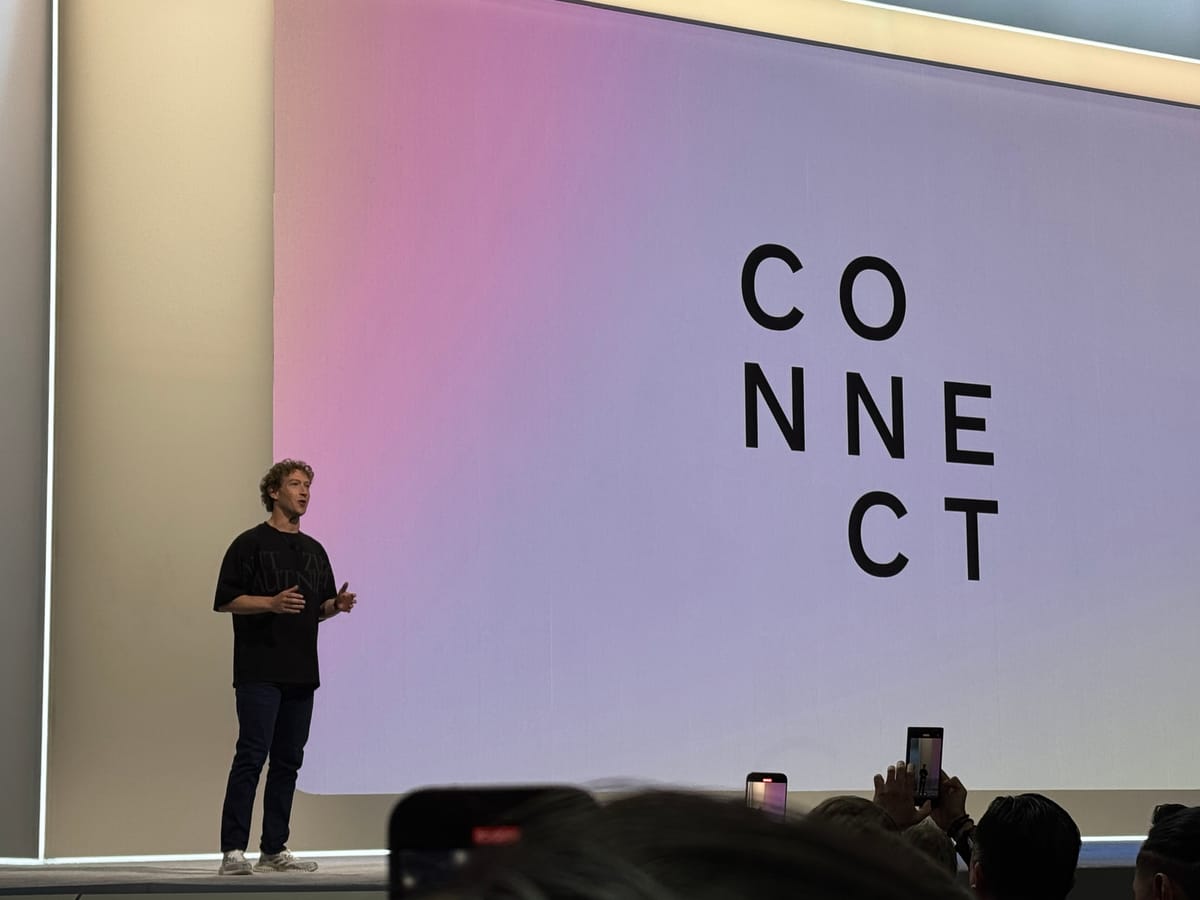
The last time I saw Mark Zuckerberg take the stage, just a few weeks ago, the slogan on his chest struck a note of humility. "Learning through suffering," it read in Greek — a nod to the years Meta's CEO spent as a punching bag after building the company into one of the world's most successful.
On Wednesday, though, Zuckerberg was back on the offensive. "Aut Zuck aut nihil," his shirt read. The Latin phrase, which originated as "aut Caeasar aut nihil," can be read as either "either a Caesar or nothing" or "all or nothing."
But at Meta Connect, the company's annual developer conference," it came across as "Zuck or nothing" — and over the course of the keynote, that's just what we got.
Other tech CEOs typically take one or two big announcements for themselves and leave the rest to their lieutenants. Not Zuckerberg: aside from a creator and a prizefighter who he brought on stage for demos, and an employee who delivered him the company's latest augmented reality glasses prototype in a locked suitcase, on Wednesday Zuckerberg was the whole show.
"We can start to see how the future of computing and the future of human connection are going to look," he said as he kicked off his announcements. "And it’s pretty awesome."
Those announcements included a host of new products and features, including cutting-edge augmented reality glasses, enhancements for the company’s existing Meta Ray-Bans, a new entry-level Quest virtual reality headset, and artificial intelligence features across the company’s product lineup.
The company also plans to start testing AI-generated content in the Facebook and Instagram feeds, bringing us a step closer to synthetic social networks.
"In every generation of technology, there is a competition of ideas for what the future should look like," Zuckerberg said as his keynote wrapped up. "And at Meta we are trying to build a future that is more open, more accessible, more natural, and more about human connection. This is the continuation of the values and ideas that we have brought to the apps and technology that we have built over Meta's first 20 years."
This was a fine as an effort to make coherent a disparate series of product announcements, and to attempt to find some continuity from the company's earliest days to a world in which the friends and family in their feeds have been replaced by AI images.
But it left unsaid what seemed to be the larger point, which is that Zuckerberg intends to crush his rivals — particularly Apple — into a fine pulp. His swagger on stage was most evident when discussed the company's next-generation glasses as the likeliest next-generation computing platform, and highlighted the progress that Meta had made so far in overcoming the crushing technological burdens necessary for that to happen.
And it also failed to capture just how personal all this seems to him. Burned by what he has called the 20-year mistake of the company's reaction to the post-2016 tech backlash, and long haunted by criticisms that Meta has been nothing more than a competition-crushing copycat since it released the News Feed, Zuckerberg has never seemed more intent on claiming for himself the mantle of innovator.
His glasses, his virtual reality headset, his AI, his company. He will be a Caesar or nothing. And woe to anyone who stands in his way.
Orion
The star of Zuckerberg's presentation was Orion, the company’s prototype AR glasses. Last week, after trying on Snap’s latest version of Spectacles, I lamented their slim 46-degree field of view, which create an experience where the operating system disappears every time you move your head. Orion’s field of view is 70 degrees, and those who have tried it said it creates a more immersive experience than other AR glasses. (See Alex Heath’s in-depth piece on his Orion demo, in which Zuckerberg beats him in a game of Pong.)
Orion represents an effort to build what Meta believes will be the end state of glasses-based computing: a device that goes beyond the basic voice-based interactions that are now possible on the company’s Meta Ray Ban sunglasses to create a full-fledged computing platform: one where you can do work, watch movies, and make holographic phone calls.
As Heath reports, Orion was initially planned to be a device for consumers. But it’s not ready — each unit reportedly costs $10,000, and the user experience requires a number of painful compromises. Among other things, users have to wear a “neural wristband” to help control the device, and carry a wireless puck that handles the processing.
“The technical challenges to make them are insane,” Zuckerberg said on stage Wednesday.
The demos all look fun, but the full experience won’t be available in a consumer product for years. A more limited set of AR glasses codenamed Hypernova may ship next year, Heath reports.
Meta has planted an impressive flag in the ground with Orion. But the decade-long path to AR glasses has shown us, over and over again, that delivering on the technology’s promise is excruciatingly hard.
I'll share more impressions after I've tried them myself.
AI features
It went all but unmentioned on stage, but Meta says it is beginning to test content “imagined for you” by Meta AI on Facebook and Instagram. Meta will use your likeness and interests to generate photos and videos with AI, and you’ll be able to swipe to generate additional related posts.
Did you enjoy that picture of Shrimp Jesus? Great. Now you can see your own face on a body made out of crustaceans.
You can see how this idea would be appealing to Meta, as it solves the problem of people posting less to Facebook and Instagram. And over time, as AI improves, I can imagine seeing synthetic content that feels engaging. But if Meta moves too quickly, pumping the feed full of cheap AI-generated content risks giving the company’s core products the feel of an abandoned amusement park.
"I would say we're trying to find a way that it's good," Chris Cox, Meta's chief product officer, said in an interview with Platformer. "AI-generated art in certain verticals is really compelling. If you're interested in architecture, or fashion, or anime, visual inspiration is a thing."
Cox told me the company would be cautious in rolling out synthetic media in the feed. "We're gonna start small and see what works," he said.
One thing that is giving Meta some confidence here: 1 million advertisers have used its generative AI ad tools to create more than 15 million ads in the last month. The company says generative AI ads have an 11 percent higher click-through rate and 7.6 percent higher conversion rate, suggesting that average Facebook and Instagram users are not as put off by AI imagery as many critics.
Elsewhere, Meta AI now has a voice mode, and you can chat with the company’s Llama-powered bot on WhatsApp, Instagram, Facebook and Messenger. And yes, those voices include celebrities, including Dame Judy Dench, John Cena, and Awkwafina. (It’s rolling out in the United States, Canada, Australia, and New Zealand over the next month. Cox told me Dench is his favorite.)
In the United States, Meta AI will also gain limited visual intelligence, letting users send photos to the bot and ask (for example) what bird they’re seeing on their hike. The bot can also edit the photo, removing objects or changing the background. It’s powered by the company’s new Llama 3.2 models, Meta’s first to understand both images and text, which were released in open source.
Meta Ray-Bans
Meta’s second-generation smart Ray-Bans have proven surprisingly successful, selling an estimated 700,000 units and doubling shipments over the last quarter, according to the Wall Street Journal.
At Connect, the company announced new features including reminders, which let you ask Meta AI to remember or remind you of things you have seen. You can also scan QR codes from the glasses.
On Tuesday, I got a demonstration of some of the new features. The glasses dutifully set a reminder for me, identified a tree, and translated a store sign written in Spanish into English. It all feels a little mundane, and is nothing you couldn’t do with a phone. But being able to do it all with your voice, and without taking your phone out of your pocket, remains a nice touch.
Later this year, the company said you will be able to use Meta AI with live video to help you interpret your surroundings in real time. Live language translation is coming as well, it said.
A simple Quest
The company announced the Meta Quest 3S, an entry-level headset that starts at $299.99. That’s less than half the prior cost of the Quest 3, which until this week started at $649.99. (It’s dropping down to $499.99 as of today; the Quest 2 and Quest Pro are being discontinued.)
Meta got the price down by using the optical stack from the Quest 2, rather than the more advanced pancake lenses that are in the Quest 3. And while it lacks the wider field of view and higher-resolution display of the Quest 3, I found the visuals on the 3S to be more than good enough for all of the tasks I tried during a demo. I watched part of The Beekeeper, browsed Spotify, and spent a few minutes in Horizon Worlds to watch a Sabrina Carpenter concert, and the visuals were all crisp.
Batman: Arkham Shadow, a new entry in a beloved series of action games, will be bundled with the new devices, and I got a chance to play a roughly 10-minute section of the game on Tuesday. It’s well made, and turns Batman’s punching and kicking into a fun rhythm game.
Unfortunately, I’m one of those people that experiences nausea and feelings of disorientation in virtual reality, particularly when I’m controlling an avatar that is moving rapidly through virtual space. Playing Batman on the 3S made me want to lie down, and I would much rather watch the game on YouTube than play through it myself.
The technology in the 3S is impressive, and the price is attractive. But I’ve still never met a mixed-reality headset that I didn’t want to take off my face within 30 minutes or so of putting it on. This felt particularly true at my demo this week, which took place on a hot day that had my face sweaty and uncomfortable by the end of the experience.
I don’t know what Meta is supposed to do about any of that, but it’s another reason I wouldn’t buy a Quest.
Elsewhere in Meta: Zuckerberg talked to Alex Heath and Cleo Abram ahead of the event. The company now owns Threads.com.

Governing
- The US and eight companies – Amazon, Anthropic, Google, IBM, Meta, Microsoft, Nvidia, and OpenAI – launched the Partnership for Global Inclusivity on AI, an effort to use AI solutions for sustainable development. (U.S. Department of State)
- The more than 100 signatories to the EU’s AI Pact include Amazon, Google and Microsoft, but Apple and Meta are absent. (Natasha Lomas / TechCrunch)
- Russia, Iran and China are using AI tools to influence the US elections, US officials said, with Russia running campaigns opposing Kamala Harris. (Joseph Menn / Washington Post)
- TikTok removed accounts belonging to Russian state media outlets RT and Sputnik, for running “covert influence operations,” the company said. (David Ingram / NBC News)
- X released its first transparency report since the Elon Musk takeover. It says it received almost 67 million reports of hateful conduct and took action on more than 2,000 accounts — a 99.99 percent decline in content moderation. (Vittoria Elliott / Wired)
- How Meta came to distance itself from politics and news after years of backlash. (Sheera Frenkel and Mike Isaac / New York Times)
- A look at Mark Zuckerberg's retreat from more liberal causes into a pose of neutrality. (Theodore Schleifer and Mike Isaac / New York Times)
- An inside look at the abortion scam networks being hosted on Facebook. (Emily Baker-White / Forbes)
- The Oversight Board recommended that Meta develop a more nuanced approach under the Hate Speech rule after reviewing cases containing content that requires a distinction between criticisms of state actions and attacks against people’s nationalities. (Oversight Board)
- In US v. Google: the Justice Department wrapped up its arguments. Here’s what’s been said so far and what’s next. (Lauren Feiner / The Verge)
- Google’s antitrust trials will take many years to resolve, CEO Sundar Pichai said. (Alicia Clanton / Bloomberg)
- A former Twitter employee, who was laid off when Elon Musk took over, won a legal fight over unpaid severance. (Kurt Wagner and Malathi Nayak / Bloomberg)
- The US Labor Department rolled out a new website with guidelines on how to manage risks of discrimination when using AI for hiring. (Rebecca Rainey / Bloomberg Law)
- Google filed an antitrust complaint against Microsoft in the EU, alleging that Microsoft engaged in unfair cloud computing practices. Oh so it's a problem when Microsoft does it?? (Javier Espinoza / Financial Times)
- Telegram is finally reversing course on governments’ requests to help with tracking suspected criminals on its platform following the arrest of CEO Pavel Durov in France. (Georgia Wells and Sam Schechner / Wall Street Journal)
- Austrian digital rights group NOYB filed a complaint accusing Mozilla of enabling a feature that turns the browser into a tracking tool without user consent. (Supantha Mukherjee / Reuters)

Industry
- OpenAI CTO Mira Murati abruptly anounced she is leaving the company. (Jay Peters and Kylie Robison / The Verge)
- Does it have anything to do with reports that the company is poised to abandon its nonprofit structure and give equity to Sam Altman? (Krystal Hu and Kenrick Cai / Reuters)
- ChatGPT can be exploited to store false information in long-term memory settings, allowing hackers to steal user data, a security researcher found. (Dan Goodin / ArsTechnica)
- Microsoft is reportedly changing leadership in its AI unit in its efforts to rely less on OpenAI technology. (Aaron Holmes / The Information)
- TikTok is shutting down its music streaming service, TikTok Music, in November. (Lucas Shaw / Bloomberg)
- Digital news publishers are turning to WhatsApp Channels to drive traffic to news sites. (Katie Robertson and Mike Isaac / New York Times)
- Google is integrating Gemini AI into its Workplace productivity suite. (Jess Weatherbed / The Verge)
- Google is updating its Photos app with new video editing tools and AI presets for videos. (Jess Weatherbed / The Verge)
- Street View images will be updated in almost 80 countries, Google said, and the feature will be available in four new countries. (Emma Roth / The Verge)
- Current AI technology can pass Google’s image-based CAPTCHA bot detection system, researchers found. (Peter Saalfield / Decrypt)
- A look at Google's $2.7 billion decision to rehire Character.AI co-founder Noam Shazeer. / Wall Street Journal)
- Snap is partnering with Google to use its generative AI model to power its My AI chatbot. (Aisha Counts / Bloomberg)
- Reddit is adding AI translations to 35 new countries. (Paul Sawers / TechCrunch)
- Spotify Premium users in the US, Canada, Ireland and New Zealand can now access its AI Playlist feature in beta. It's like text-to-image but for music. (Jess Weatherbed / The Verge)
- A new nonprofit co-founded by the current editor of ActivityPub, the Social Web Foundation, is looking to use the fediverse’s momentum and expand it. (Sarah Perez / TechCrunch)
- Doctors and assistants are increasingly using AI to write messages to patients using a new AI feature in medical communications platform MyChart. (Teddy Rosenbluth / New York Times)
- A look at Molmo, the multimodal open language model developed by the Allen Institute for AI, and its abilities to interpret images and converse through chat. (Will Knight / Wired)

Those good posts
For more good posts every day, follow Casey’s Instagram stories.

(Link)

(Link)
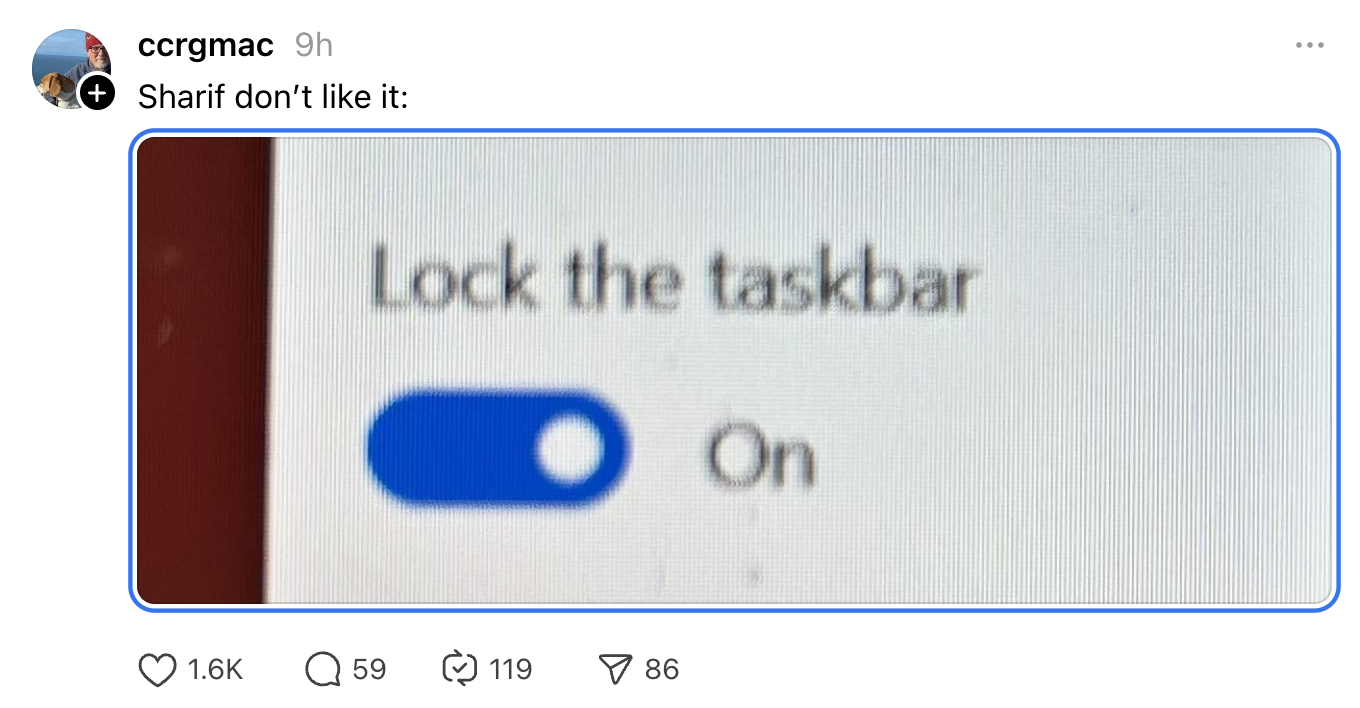
(Link)

Talk to us
Send us tips, comments, questions, and Orion questions: casey@platformer.news.


